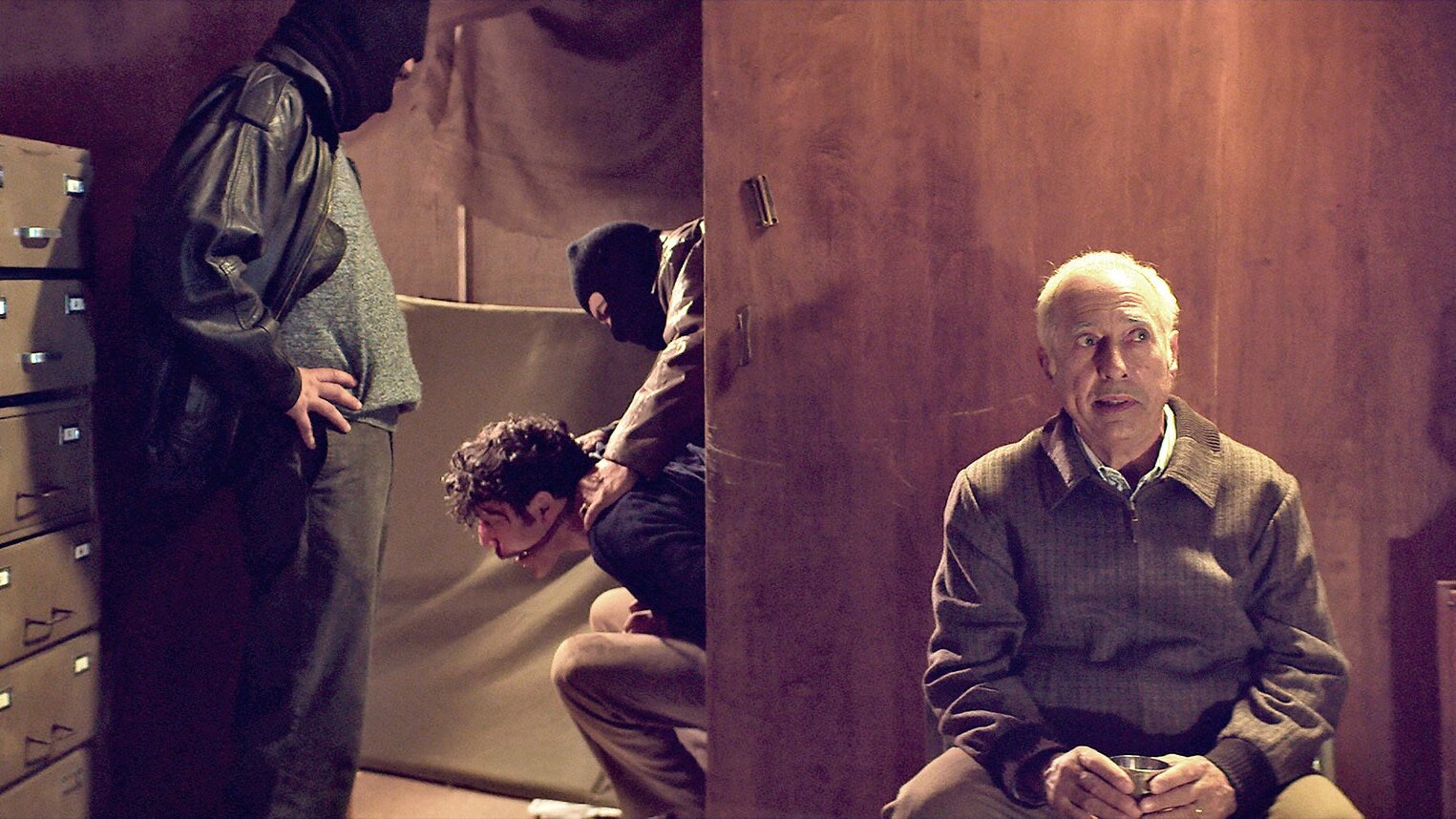The Clan
A change of tone from Pablo Trapero, which will please some more than others.
Guillermo Francella (on the right)
The Argentinian Pablo Trapero has become one of those foreign directors whose reputation is such that most of his films get distributed here. Leaving aside the more humorous Familia Rodante (2004) which is still my own favourite among his movies, Trapero has largely focused on strong social dramas reflecting life in Argentina and on paper The Clan, which won the Silver Lion at Venice last year, would seem to continue in the same vein. It tells the true story of the Puccio family who, responsible for kidnappings and killings in Buenos Aires, were brought to book in the 1980s.
As a family portrait that upturns all notions about good parenting, The Clan is curiously close to another film taken from real life in the same period, the Australian Animal Kingdom (2010), although the criminal clan there was ruled by a matriarch. Here the pivotal figure is dad, Arquímedes Puccio played by Guillermo Francella not without a touch of Alfredo Castro. He and his wife had five children and, while each is depicted on screen, the one most central here is the eldest son, Alex (Peter Lanzani, an actor with star potential). Alex was well known as a rugby player but his father involved him closely in his crimes. The film is much more vague about another brother, Maguila (Gastón Cocchiarale), who has fled the nest (which suggests a desire to escape this lifestyle) but who is brought back and promptly joins in the violence.
Trapero seems anxious to place this story firmly in its historical context as a comment on the continuing corruption following the Dirty War in Argentina, but indications of Arquímedes having been involved in the disappearances and then continuing not dissimilar actions with some approval remain somewhat indistinct. His victims now are the rich willing to pay ransoms in the illusory hope that those kidnapped will then be returned alive. But any lack of clarity is increased by the fact that the film starts its story at the end with confusing scenes only fully clear when they are reprised late on.
But, given the stark authenticity of the tale, what really grates is the self-conscious approach adopted by Trapero and new to his work: the misjudgment becomes self-evident as soon as one compares this with the straightforward narrative style of Animal Kingdom. Here key moments - and especially the scenes of kidnapping - are accompanied by a series of pop songs including Sunny Afternoon by The Kinks, while intercutting elsewhere adds to the sense of artifice. These methods may or may not be intended to suggest irony, but instead they create a sense of pseudo-stylishness entirely at odds with what the material requires. This aspect is so assertive that it comes to characterise the whole film. Responses to it including my strongly averse one could be a matter of personal taste.
MANSEL STIMPSON
Cast: Guillermo Francella, Peter Lanzani, Lili Popovich, Gastón Cocchiarale, Giselle Motta, Franco Masini, Antonia Bengoechea, Stefania Kossi, Anibal Barengo, Aldo Onofri, Juan Santiago Privitera.
Dir Pablo Trapero, Pro Hugo Sigman, Matías Mosteirin, Agustin Almodóvar, Pedro Almodóvar, Esther García and Pablo Trapero, Screenplay Pablo Trapero, Ph Julián Apezteguía, Art Dir Sebastián Orgambide, Ed Pablo Trapero and Alejandro Carrillo Penovi, Music Sebastián Escofet, Costumes Julio Suárez.
K&S Films/Matanza Cine/El Deseo/Fox International Productions-Curzon Artificial Eye.
108 mins. Argentina/Spain/USA. 2015. Rel: 16 September 2016. Cert. 15.


